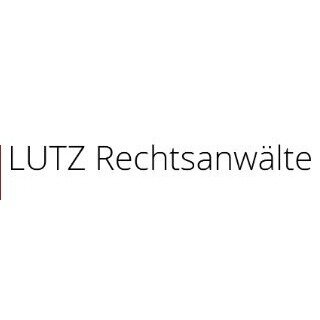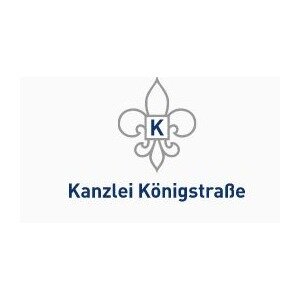Best Mining Law Lawyers in Stuttgart
Share your needs with us, get contacted by law firms.
Free. Takes 2 min.
List of the best lawyers in Stuttgart, Germany
About Mining Law in Stuttgart, Germany
Mining Law in Stuttgart, and generally throughout Germany, governs the exploration, extraction, processing, and closure of mining activities. Germany's mining legal framework is primarily established by the Federal Mining Act (Bundesberggesetz or BBergG), which outlines regulations concerning mineral resources, environmental protection, occupational safety, and the rights of landowners as well as mining companies. In Baden-Württemberg, where Stuttgart is located, additional regional rules and permit requirements apply. Mining operations can involve mineral and resource extraction from both above-ground and underground sources, including gravel, clay, and construction materials.
Why You May Need a Lawyer
Engaging in mining activities or dealing with related concerns often requires specialized legal knowledge. Common situations where legal advice is required include:
- Navigating complex licensing and permit applications for mining projects
- Understanding environmental protection requirements
- Negotiating land use agreements or resolving disputes between landowners and mining operators
- Ensuring compliance with occupational health and safety standards
- Handling liability or compensation issues related to mining activities
- Responding to governmental inspections or enforcement actions
- Advising on taxation, royalties, and financial aspects of mineral extraction
A qualified mining law lawyer in Stuttgart can help minimize legal risks, streamline the permitting process, and represent your interests in dealings with governmental bodies.
Local Laws Overview
Stuttgart’s mining activities are subject to several overlapping legal frameworks. The key aspects of local mining law include:
- The Federal Mining Act (BBergG): This national law sets the general rules for exploration and extraction, including licensing, environmental considerations, and safety requirements.
- Baden-Württemberg Mining Ordinances: Regional ordinances implement federal law and set out specific processes for permit applications, environmental assessments, and public participation in mining decisions.
- Environmental and Nature Protection Laws: Mining projects must comply with the Federal Nature Conservation Act and local environmental protection regulations, ensuring minimal impact on protected species and habitats.
- Building and Planning Laws: Local municipalities like Stuttgart have influence on land use through zoning plans, which can affect where mining activities are permissible.
- Health and Safety Standards: Strict requirements protect miners and the public, with regular inspections from mining authorities.
- Public Participation and Transparency: Mining applications often require public notification and allow for objections or concerns from citizens and stakeholders.
These laws collectively ensure safe, environmentally responsible, and legally compliant mining operations within Stuttgart and the wider region.
Frequently Asked Questions
What permits are required for mining in Stuttgart?
Generally, a prospecting or extraction license as per the Federal Mining Act is mandatory. Environmental impact assessments and planning approvals from local authorities may also be required depending on the type and scale of mining.
Who regulates mining activities in Stuttgart?
The main regulatory bodies are the Regional Councils of Baden-Württemberg and the State Mining Authority. These agencies oversee compliance, permits, and enforcement actions.
Can private landowners conduct mining on their property?
In most cases, private landowners do not own the subsurface mineral rights. Extraction typically requires government approval and coordination with relevant authorities, who may grant third parties the right to mine after a legal process.
How is environmental protection ensured in mining operations?
Before mining permits are granted, environmental assessments are conducted. There are strict requirements for minimizing environmental harm, rehabilitating mining sites, and monitoring pollution or land disturbance.
What should I do if I encounter environmental damage from a mining site?
Report the situation to the local mining authority or environmental agency. Legal remedies, including compensation or enforcement actions, may be available depending on the circumstances.
Are there special protections for historic sites or nature reserves?
Yes, mining is generally not permitted in protected areas or near recognized historic sites. Stringent rules and public interest considerations apply in these situations.
How long does it take to obtain a mining license?
The timeframe can vary from several months to over a year, depending on the complexity of the project, environmental review processes, and public participation requirements.
Can communities object to mining projects?
Yes, affected communities and stakeholders have the right to participate in permitting processes, submit objections, and attend public hearings related to proposed mining operations.
What are the consequences of non-compliance with mining laws?
Non-compliance can result in fines, suspension or revocation of permits, liability for damages, and criminal prosecution in severe cases.
What legal support is available for miners or affected residents?
Both miners and those affected by mining have access to legal representation, government ombudspersons, and advisory services that can help navigate disputes or advocate for rights and interests.
Additional Resources
For further information or assistance regarding Mining Law in Stuttgart, you may find the following resources helpful:
- Baden-Württemberg Ministry of the Environment, Climate Protection and the Energy Sector - division for mining issues.
- State Mining Authority (Landesbergamt Baden-Württemberg) - the primary regulator for mining applications, licensing, and compliance.
- Local Regional Council offices (Regierungspräsidium Stuttgart) - handles regional mining affairs, public participation, and environmental oversight.
- Environmental advice centers and legal clinics in Stuttgart - offering information and support for community members affected by mining projects.
- German Bar Association (Deutscher Anwaltverein) - to help locate a qualified mining law attorney in the region.
Next Steps
If you require legal assistance in Mining Law in Stuttgart, consider the following actions:
- Identify the nature of your legal issue - whether it relates to permits, environmental impact, land use, or disputes.
- Gather relevant documents, correspondence, and any notices from government authorities regarding your mining-related matter.
- Contact a lawyer who specializes in mining or environmental law in Stuttgart for a consultation. Prepare a list of your questions and concerns.
- If you are facing immediate issues such as enforcement actions or environmental damage, promptly notify the relevant governmental body or authority.
- Stay informed about your rights and obligations by visiting official resources or seeking guidance from local legal aid services.
A lawyer with experience in mining law can help you navigate regulations, protect your interests, and find effective solutions to your legal challenges in Stuttgart, Germany.
Lawzana helps you find the best lawyers and law firms in Stuttgart through a curated and pre-screened list of qualified legal professionals. Our platform offers rankings and detailed profiles of attorneys and law firms, allowing you to compare based on practice areas, including Mining Law, experience, and client feedback.
Each profile includes a description of the firm's areas of practice, client reviews, team members and partners, year of establishment, spoken languages, office locations, contact information, social media presence, and any published articles or resources. Most firms on our platform speak English and are experienced in both local and international legal matters.
Get a quote from top-rated law firms in Stuttgart, Germany — quickly, securely, and without unnecessary hassle.
Disclaimer:
The information provided on this page is for general informational purposes only and does not constitute legal advice. While we strive to ensure the accuracy and relevance of the content, legal information may change over time, and interpretations of the law can vary. You should always consult with a qualified legal professional for advice specific to your situation.
We disclaim all liability for actions taken or not taken based on the content of this page. If you believe any information is incorrect or outdated, please contact us, and we will review and update it where appropriate.











